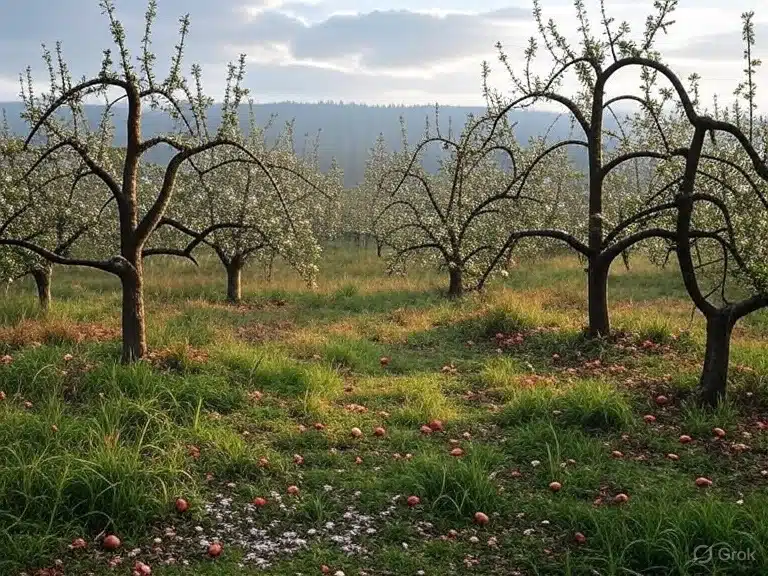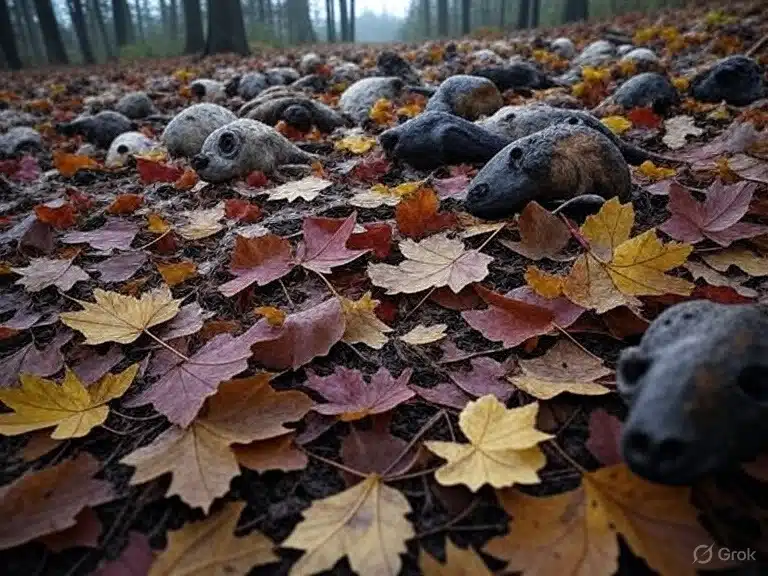Insects may be small, but they are among the most important creatures on our planet. From pollinating crops to recycling waste, they form the backbone of ecosystems that humans and countless other species rely on. But imagine waking up tomorrow to a world where every insect had suddenly vanished. At first, people might celebrate a life free of mosquitoes, flies, and cockroaches—but the long-term consequences would be catastrophic. Let’s explore what would really happen if insects disappeared overnight.
A False Sense of Relief
Initially, the absence of insects might feel like a blessing. No buzzing mosquitoes to bite us, no wasps to sting us, no pests destroying crops. Cities might feel cleaner, and homes would be free from many common nuisances. But this illusion of relief would quickly collapse once the broader consequences began unfolding.
Pollination Crisis and Food Shortages
One of the most critical roles insects play is pollination. Around 75% of the world’s flowering plants and 35% of global food crops rely on insect pollinators like bees, butterflies, and beetles. Without them:
- Fruits, vegetables, and nuts would become scarce.
- Yields of crops such as apples, almonds, coffee, and berries would plummet.
- Farmers would attempt to hand-pollinate plants, but this would be expensive and nearly impossible on a large scale.
Within just a few years, supermarket shelves would empty of many nutritious foods. Humanity would face a global food crisis.

Collapse of Ecosystems
Insects are the foundation of countless ecosystems. Without them:
- Birds, amphibians, and small mammals that feed on insects would starve, leading to cascading extinctions.
- Fish populations in rivers and lakes would crash as aquatic insects vanished.
- Predators higher up the food chain, including humans, would suffer from collapsing biodiversity.
Within decades, entire ecosystems could unravel, leaving Earth with far fewer species and weaker resilience against environmental change.
Waste and Decomposition Disaster
Insects are also nature’s recyclers. Beetles, ants, and flies break down organic waste, carcasses, and animal droppings. Without them:
- Dead animals would linger, creating disease hazards.
- Animal waste would accumulate, contaminating water supplies.
- Soil would lose nutrients normally returned through decomposition, making farming even harder.
This would make cities dirtier, farmlands less fertile, and natural cycles of renewal broken.

The Human Struggle for Survival
The disappearance of insects would leave humanity fighting for survival on multiple fronts:
- Agricultural collapse – Staple foods may survive thanks to wind or self-pollination (like wheat, corn, and rice), but diversity in diets would vanish.
- Economic impact – Industries dependent on insect-pollinated crops, like coffee and chocolate, would collapse.
- Health risks – Disease-carrying insects would be gone, but so would those that naturally control pests. Rodents and crop-destroying species would multiply unchecked.
- Malnutrition – A global diet dominated by grains would lead to vitamin deficiencies, hunger, and weakened immunity.
Human survival would depend on technological innovation, such as robotic pollinators, artificial fertilizers, and lab-grown food.
Could Technology Save Us?
Scientists are already experimenting with alternatives to insect pollination. Robotic drones, artificial pollinators, and genetic engineering might soften the blow. But scaling these technologies to replace trillions of insects is almost unimaginable.
Instead, humanity would be forced to shift its diet dramatically, relying more on staple grains, synthetic foods, and possibly even insect farming alternatives grown in labs. Ironically, insects are already a sustainable protein source in many cultures—without them in nature, we might end up missing their value in food security.
A Planet Forever Changed
If all insects vanished from Earth, life would never be the same. Ecosystems would collapse, food chains would disintegrate, and humanity would face the greatest survival challenge in history. While technology might help us adapt, the rich biodiversity we enjoy today would be lost forever.
This scenario highlights one truth: insects are not just pests—they are essential partners in life’s delicate web. Protecting them is crucial, because without insects, Earth itself begins to unravel.

